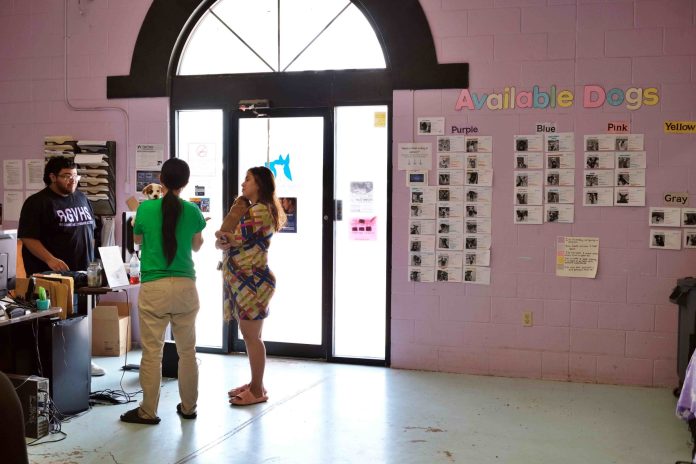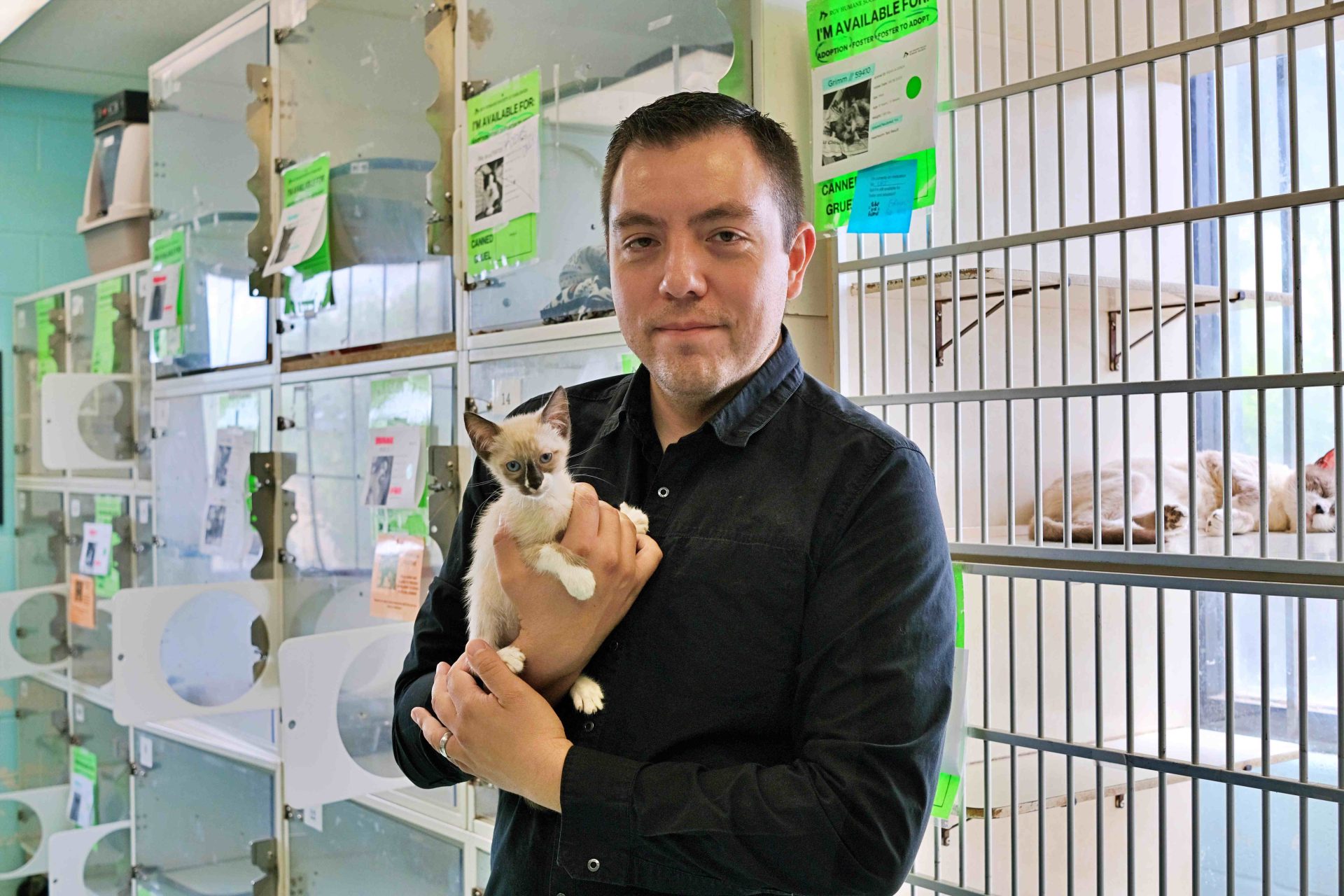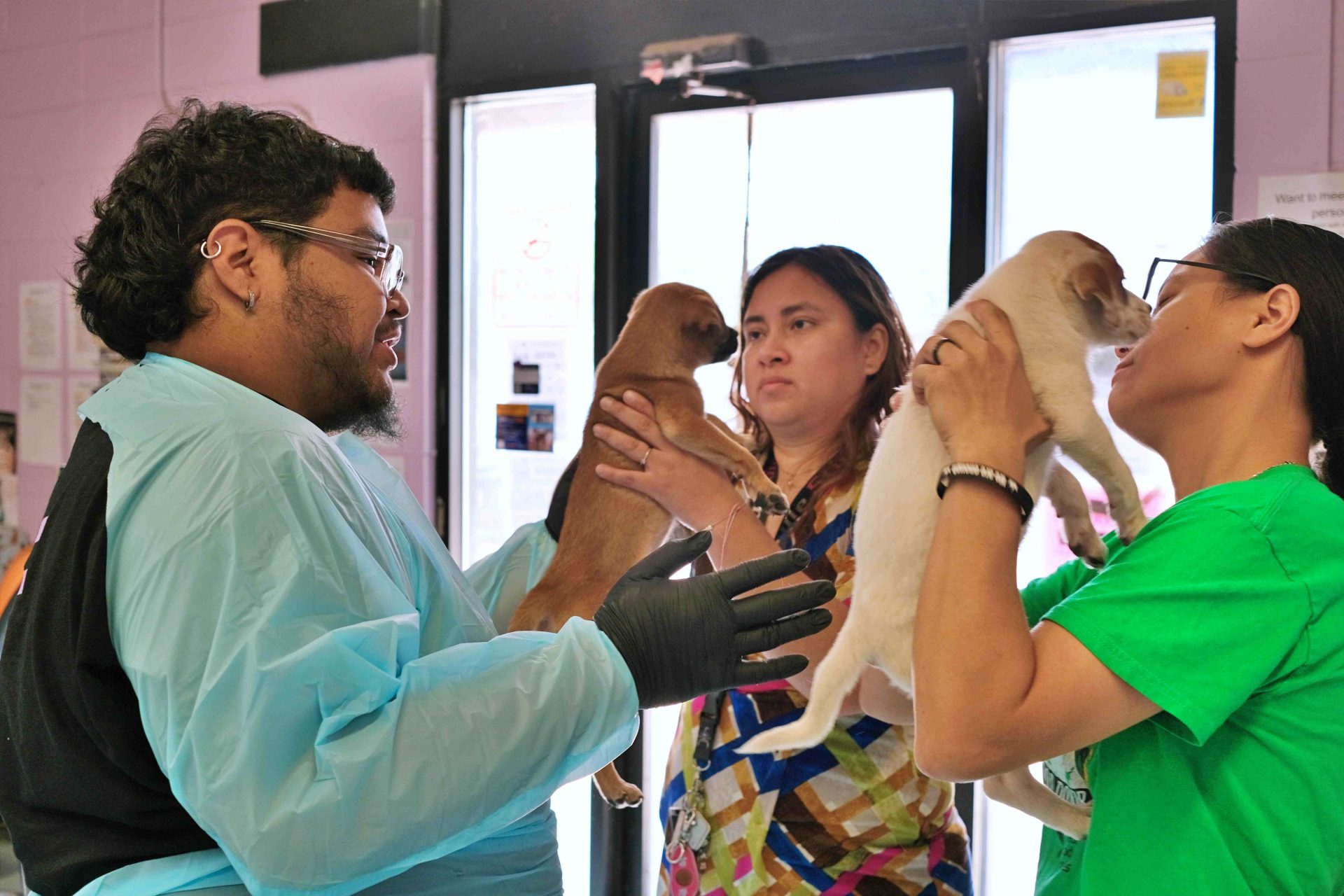
|
Only have a minute? Listen instead
Getting your Trinity Audio player ready...
|
HARLINGEN — Days after terminating the Rio Grande Valley Humane Society’s contract, city leaders said they are trying to account for the agency’s use of the city’s annual $400,000 payments.
After reviewing the Humane Society’s financial report, officials said they have been unable to determine whether Harlingen’s money was used to help its residents or those living outside of town.
“We’re going to continue asking questions because we need to provide accountability of the $400,000 we provided them with,” Assistant City Manager Josh Ramirez said Tuesday.
Earlier this year, the Humane Society’s merged with the city of Mission, which began providing the agency with an additional $400,000.
“The organization’s recent statement suggests the report covered operations for two shelters,” Mayor Norma Sepulveda said in a statement Tuesday.
Last Friday, the Harlingen contract’s termination marked the end of a decades-long relationship between the city and the Humane Society which operated under the name the Harlingen Humane Society until early this year, when the agency merged with Mission, becoming the Rio Grande Valley Humane Society.
Now, city officials are requesting proposals from agencies to operate the city-owned animal shelter after Jan. 18, when the Humane Society’s contract expires.
“Unfortunately, the organization has not met the necessary standards for contract renewal,” Sepulveda stated. “A key requirement was a detailed and comprehensive financial annual report, essential for understanding the allocation and impact of our funding. The report we received for fiscal year 2022-2023 lacked the necessary detail, providing only a summary of revenues and expenses. Of particular concern was the allocation of nearly $1 million to ‘personnel expense’ and ‘contract labor,’ without a clear breakdown or justification.”
“However, the financial report only accounts for the $400,000 funding from Harlingen, not reflecting funding from their shelter in the Upper Valley,” she stated. “This discrepancy raises serious questions.”
“We hoped to continue our longstanding relationship with the RGVHS, contingent on receiving the necessary financial documents,” she stated. “However, as elected officials, we must make tough decisions to ensure we are good stewards of taxpayer dollars. Consequently, we cannot renew the contract under these circumstances.”

In mid-2022, former Executive Director Luis Quintanilla told city commissioners the shelter’s operating costs ran about $1 million a year, Sepulveda stated.
“More recently, RGVHS has stated it cost between $1.2 million to operate our shelter and another $1.4 million to operate their Upper Valley shelter,” she stated. “The operating budget in the report provided to the city reflects $1.4 million, making it impossible to represent revenues and expenses for two shelters based on their previous statements.”
In its response, the Humane Society claimed the city was “intentionally misinforming” residents.
“It’s unfortunate that the city of Harlingen opted to tarnish the reputation of the Rio Grande Valley Humane Society, ultimately aiming to end a long and impeccable 34-year partnership,” interim Executive Director Melissa Saldana said Tuesday in a press release.
She said the allegations are unfounded and don’t align with the organization’s values.
“We will remain focused on our mission and continue serving the citizens of the Rio Grande Valley,” she stated.
She also alleged Harlingen is intentionally misinforming residents.
“While the city of Harlingen has intentionally misinformed the public about the amount of money that is allegedly spent on Harlingen staff, they failed to note that the budget also includes our Upper Valley partner. Our dedicated Harlingen team cares for more than 3,500 animals a year who come into the shelter. More than 90% of whom are adopted or rescued each year since 2019. The same staff and veterinarians who also, just this year alone, performed more than 2,300 low-cost spay-neuter surgeries and administered over 3,300 vaccines.”
Saldana also said the organization stands by the truth and integrity of its work.
“We stand by our values and are committed to saving the lives of homeless pets in the Rio Grande Valley,” she stated. “We urge the public to consider the facts and our long-standing dedication to our community and animals.”
In an earlier statement, the Humane Society described the city’s statements as “categorically false, disturbing and reckless,” Maria Villagomez, the agency’s communications coordinator, stated in a press release Saturday.
“We have been completely transparent that the financials provided are a reflection of both shelters we run combined,” she stated. “We have always provided the city of Harlingen with financial reports every month. We will not give out proprietary information about our grants, donors, vets, rescues and community members. (The) claim we only want to take in highly desirable dogs … is far from the truth. Walk through our shelter right now. All you will see are Texas brown dogs and pitbulls.”

Villagomez also said the Humane Society has never refused to take in animals that its legally obligated to take.
“The city of Harlingen has made it clear that they want to focus on picking up animals running-at-large and dogs who are a danger to the public. The fact of the matter is animal control officers are being used as Uber drivers to pick up owner-surrendered animals and puppies, rather than picking up animals who truly need to be picked up as the mayor claims,” Villagomez stated.
The organization also accused Harlingen of manipulating information in this release and said the city’s goal is to remove it.
“Their lack of knowledge of animal welfare is apparent. They are basing their allegations on speaking to breed-specific rescues that don’t save the dogs who are dying in shelters. The city of Harlingen has made it clear that they do not support the no-kill movement. The consequences of the city running the animal shelter will result in the almost immediate industrial-scale killing of healthy animals on a daily basis.”
In response to months of requests for detail financial information, on Nov. 10, the Humane Society presented information it said showed the agency spent $1,926 on dog and cat food, $19,896 on spay and neuter expenses and $23,040 on microchipping, among other items, within a reported $1.4 million annual budget, while collecting $347,307 in donations and receiving grant funds totaling $5,000.
For more than two months, city officials had been calling on the Humane Society to work to revise the agency’s $400,000 contract.
In September, animal rights groups’ heated concerns led commissioners to give the Humane Society 120 days to help them revise a proposed contract.
Since about 2020, the Humane Society, under Quintanilla, began operating as a “no-kill” shelter, slashing its number of euthanasia procedures.
Last month, Quintanilla resigned after about four years on the job.



